Six faculty members have been honored for outstanding contributions to undergraduate education as this year’s recipients of Arthur F. Thurnau professorships.
Those honored include one professor who helped develop the undergraduate program in biomedical engineering, another who initiated an overhaul of the physics honors program, and one who co-developed the undergraduate program in sustainable engineering. Others selected are a music professor who takes his students to perform in venues across the globe, one who has been praised for his use of technology in the classroom and another considered a pioneer in creating courses in partnership with community organizations to bring art to those who might not otherwise experience it.
This year’s recipients are Joseph Bull, Michael L. Haithcock, Sadashi Inuzuka, Bradford Orr, Brian Porter-Szucs and Steven Skerlos. Descriptions of their work are taken from recommendations provided to the regents by Provost Phil Hanlon.
The appointments, approved Feb. 16 by the Board of Regents, are titles the six will retain throughout their careers at the university.
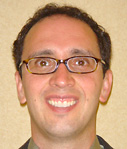
Bull
Bull, associate professor of biomedical engineering, College of Engineering, is considered “a champion of undergraduate education in Biomedical Engineering” by colleagues, and is regarded as one of the most passionate and caring instructors in the department. Bull infuses his courses with project-based learning experiences, and students praise his ability to break down difficult concepts into manageable parts. One student said, “He is patient and attentive to the students — questions are always addressed, and students never leave lecture frustrated with a topic.” Bull has played an integral role in the development of the undergraduate program in Biomedical Engineering, including designing the course Introduction of Biofluid Mechanics and further developing the Undergraduate Studies in Biomedical Engineering program.
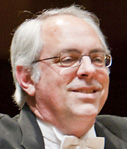
Haithcock
Haithcock, professor of music, School of Music, Theatre & Dance, is lauded for his dedicated teaching and transformative leadership. Colleagues say he works tirelessly to provide unique learning experiences and develop strong relationships with students, attending each student’s individual recital and writing more than 100 recommendation letters each year. Haithcock seeks out opportunities for his students to perform in major venues across the world, including Carnegie Hall in New York City, the Walt Disney Concert Hall in Los Angeles, and, most recently, in venues throughout China. In preparation for this most recent tour, he organized a seminar series on Chinese history and culture for participating students, led required rehearsals, and designed an itinerary that balanced performances with educational excursions to significant cultural sites.
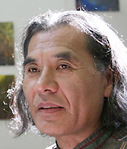
Inuzuka
Inuzuka, professor of art, School of Art & Design, is considered a pioneer in the design and implementation of community engagement courses in A&D. For more than a decade, Inuzuka has created courses that enable students to see first-hand the role art can play in social change. Through his seminars and workshops, students develop communication skills, a reflection on the role of art-making in other people’s lives and an appreciation of alternate modes of perception, colleagues say. Students recognize this genuine concern for their personal and artistic development and consider Inuzuka to be one of the most influential faculty members of their collegiate careers. As one colleague writes, “He is a warm and caring humanist who regards each student and colleague as special and encourages each to be a better human being, artist and citizen.”
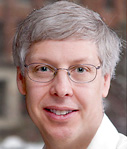
Orr
Orr, chair, Department of Physics, and professor of physics, LSA, has a record of curricular innovation within the Department of Physics that has earned him numerous teaching awards including the LSA Excellence in Education Award, the Lockwood Distinguished Instructor Award, and the 2010 Provost’s Teaching Innovation Prize. Everyday Physics, a course he created in 1993, now is the most popular within the department, and students enthusiastically promote its influence on their academic careers. Later on, as chair of the department, Orr initiated a comprehensive overhaul of the introductory honors course sequence, integrating computational methods and doubling enrollment. Orr also has assumed leadership roles in the development of academic support programs including the Learning Assistant Program, and he has served as a mentor at all levels.
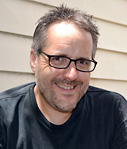
Porter-Szucs
Porter-Szucs, professor of history, LSA, is described by colleagues as “one of the history department’s most committed, conscientious, innovative and successful teachers.” Students and faculty alike praise him for his dedication to students and his efforts to improve the department’s undergraduate program. One student said, “I always felt like he was invested in me, that I had something to contribute and that my career was something we would build together.” Over the last 15 years, Porter-Szucs has taught the department’s introductory survey courses and designed several courses within his areas of expertise, including the history of Poland and the history of Catholicism. He has been a pioneer in the use of technology in the classroom and has served as a mentor to colleagues who also wish to incorporate new media, blogs and student response systems into their courses.
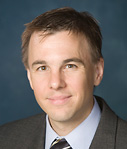
Skerlos
Skerlos, associate professor of mechanical engineering and associate professor of civil and environmental engineering, College of Engineering, is considered by colleagues as “an instructor, a mentor and a leader in education.” Under his leadership, the capstone design course in mechanical engineering consistently has received the highest student ratings of any required course within the department. Skerlos also sought out additional opportunities to improve undergraduate education. He co-developed the nine-credit undergraduate program in sustainable engineering in order to expose students to the principles of sustainable design. He also co-created the undergraduate minor in multidisciplinary design, which awards credit to students engaged in design projects across the college. Skerlos routinely mentors undergraduate students through the Undergraduate Research Opportunity Program, working with more than 20 students to date.
Each year Thurnau Professorships recognize and reward a select group of tenured faculty members for their outstanding contributions to undergraduate education. Criteria for the award include a strong commitment to students and to teaching and learning, excellence in teaching, innovation in teaching and learning, a strong commitment to working effectively with a diverse student body, and a demonstrable impact on students’ intellectual and/or artistic development.
The professorships are named after alumnus Arthur F. Thurnau and supported by the Thurnau Charitable Trust, which was established through his will. Recipients receive $20,000 to support teaching activities, including travel, books, equipment and graduate student support.

